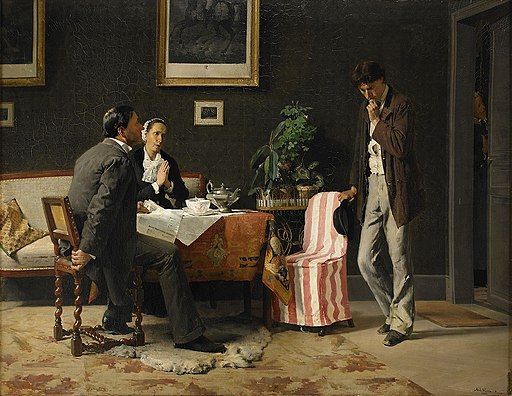Fathers and Sons

Ivan Turgenev's short novel is truly an underrated classic. Fast-paced and witty, the plot's complexity is worthy of a longer book, while the setting gives us another perspective of Russian history--neither quite Pushkin nor Dostoyevsky. Fathers and Sons came highly rated, but I didn't know it was going to be such a page-turner, hard to put down!
Set in 1859, this book is about the generational gap between "fathers and sons" (and uncle), but it is also about generational similarities. Ironically, I found what Nikolai and Bazarov shared most in common was their immorality (stemming from pride), narrowmindedness, and male chauvinism. Some things don't change, I guess.
My favorite characters were Pavel and Bazarov, the polar opposites. Pavel is a Byronic/Romantic/Pushkin-era dandy and former ladies' man, who entered middle age with a broken heart and an old-fashioned sense of style. Bazarov is different in every way--young, full of himself, could care less how he looks, and apathetically ambitious (he studies medicine, but he doesn't "believe" in it). I like Bazarov's honesty, and I think Pavel is actually the most conscientious character in the book.
I also liked Bazarov's parents, Vasily and Arina. They struck me as two people who--while not asking many questions or pushing many conventions--try to do their best where they're at. Really, the book is full of realism and grey characters; if you like reading books about "real" people, then you would probably like Fathers and Sons.
I guess what disappointed me about this book was Bazarov himself. Turgenev was about forty-four when Fathers and Sons was published, and I think the book reflects that. Bazarov doesn't come across as very true to his cause, nor does he seem to live for anything or anyone but himself--his selfishness and arrogance, not his beliefs, are his chief attributes. I do not promote/agree with the nihilist movement, but if a character is supposed to represent something, then their perspective should be examined clearly and not merely in vague expressions. At least, the generational contrast/comparison would have been more effective if Bazarov had been more sincere, like Nikolai and Pavel.
4.5 out of 5 stars. The plot is excellent (and the ending is tragic). Recommended!



Comments